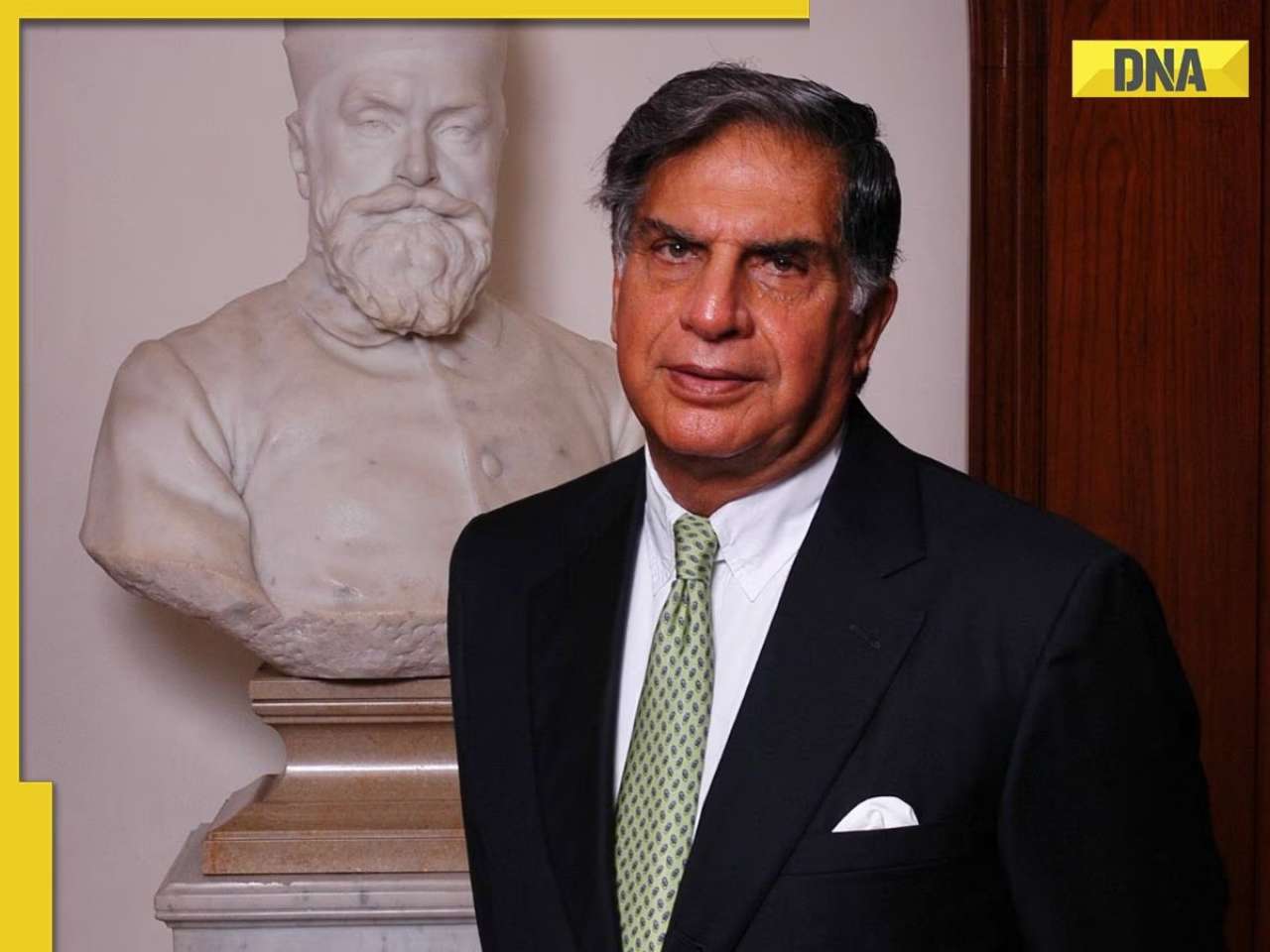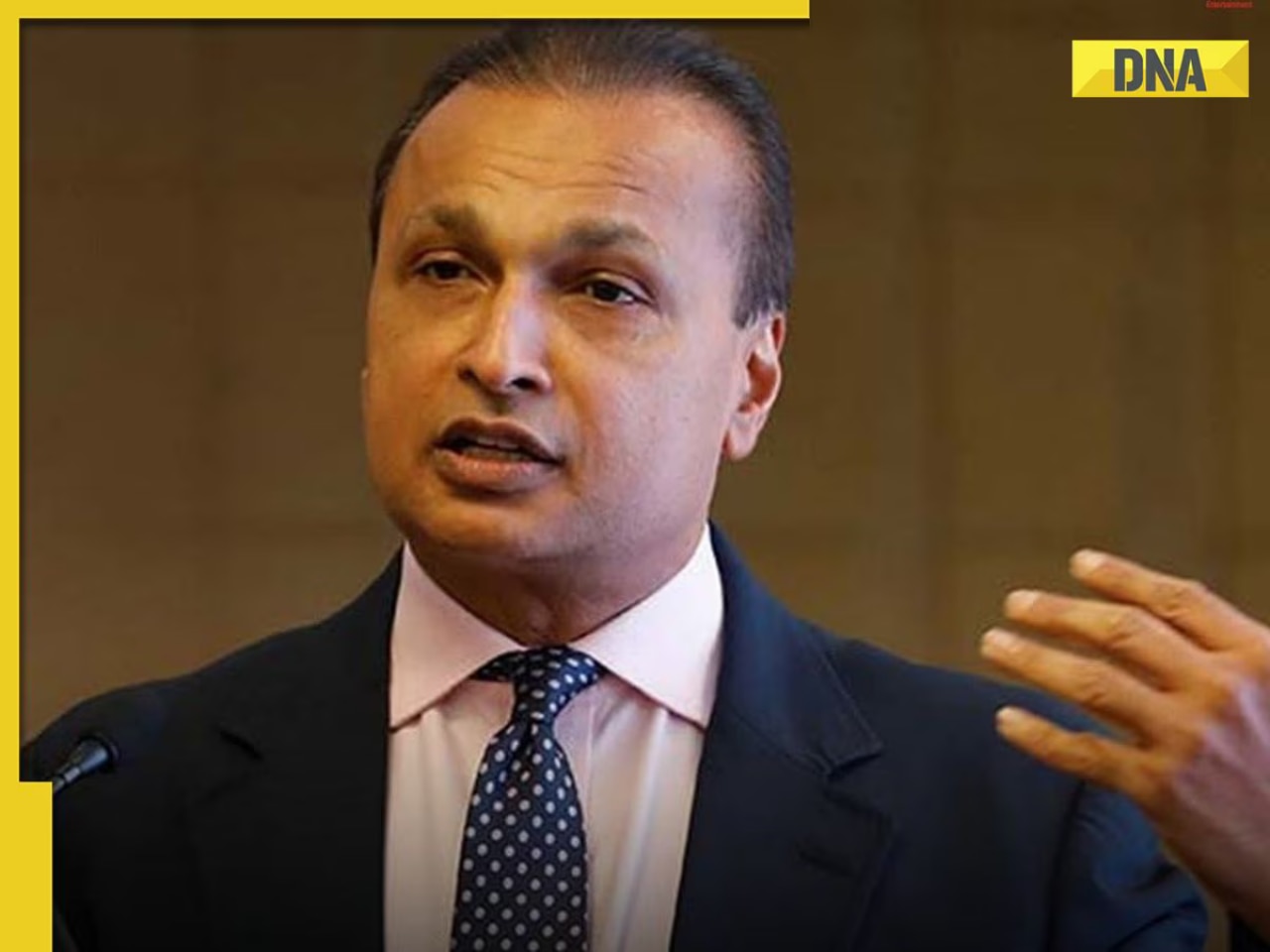Kishore Biyani-led Pantaloon Retail seems to have lost favour with investors.
Kishore Biyani-led Pantaloon Retail seems to have lost favour with investors.
The company’s shares have been beaten down to a third of their value over the past year or so — plunging from Rs378 in January last year to as low as Rs127 in this — before a semblance of reversal kicked in. The scrip closed Thursday at Rs178 apiece, having run with the momentum.
What gives for the retailer, once the toast of investors?
Just about everything, suggest experts.
Debt on its books has risen to an onerous Rs7,846 crore on a during the quarter ended December, its fiscal second quarter (Q2), led by interest costs.
Interest costs jumped a whopping 47% in Q2 alone, equivalent to 60% of its earnings before interest, tax, depreciation and amortisation, compared with 45% in the same period last year.
Worse, analysts see the debt pile rising further next fiscal.
Prabhudas Lilladher, for one, sees it at Rs9,062 crore on a consolidated basis.
The retailer reported a 71% fall in net profit for the quarter even as net sales improved 5%. Same store sales growth across lifestyle, value and home divisions was at 3.2%, 5.3% and a decline of 3.2%, respectively.
Analysts attribute the fall in profit to consumers postponing purchases, and poor festive season off-take. “Pantaloon’s Q2 results reflect the ferocity of pessimism in consumer sentiment existed during October-December as it reported quarter-on-quarter sales decline in a traditionally strong festive quarter despite 0.62 million sq ft of space addition; a rare event,” Gautam Duggad, analyst with Prabhudas, said in a note on February 10.
Secondly, it has had to deal with multiple executive exits at senior levels.
HomeTown, the home and furniture business, saw three exits — sourcing head Mahesh Shah, furniture head Abhishek Srivastava and kitchen head Mark D’Souza. The other important exits include Mayur Toshniwal, CEO, telecom business (T24), Manoj Kumar, CEO, electronics, EZone and Pankaj Tibrewal, COO, Pantaloon Retail.
The company, which has a 36,000-strong workforce, let go nearly 3,000 staff last quarter, mainly at the front end. This has pushed up the per-employee sq ft area to be manned at its stores.
Analysts however, point at another immediate challenge - that of higher inventory levels.
“Inventory per sq ft has increased (3%) from Rs2,323 per sq ft in the fourth quarter of last fiscal to Rs2,388 per sq ft. Inventory per sq ft has gone by 18% YoY, which is a matter of concern. While a part of the increase can be attributed to a hike in apparel prices, the capital employed in inventory remains elevated and has resulted in increase in core retail’s debt position,” Abhishek Ranganathan and Neha Garg, analysts at MF Global, wrote on February 13.
The retailer, which has a whopping 16.3 million sq ft of operational retail space, has, of course, been striving hard to rationalise costs — across operations, warehouses, people and working capital, among other aspects.
“In retail efficiency is everything and one has to bring changes in driving efficiency,” Kishore Biyani, founder, Future Group that owns Pantaloon Retail, said.
Biyani, who has forever been gung-ho about the prospects of organised retail and growing consumption in India, understands it is time to take quick steps to realign his company.
On February 10, the company announced the formation a ‘review committee’ with a mandate to consider various options for realignment and divestments to unlock shareholder’s value, reduce debt substantially and create consolidation of value chain in retail business. The review committee is in the process of submitting proposals to the board.
Pantaloon has also shut about nine warehouses across cities in apparel, home and general merchandise to lower costs in supply chain by centralising its warehousing at Nagpur in Maharashtra.
This warehouse, the company said is the most modern the country has seen and operates across 500, 000 sq ft of space. The company is looking at reducing about Rs300-400 crore from warehousing once the Goods and Services Act is implemented.
The company is also likely to moderate the rate of space addition in the near-term. Though it has added about 1.5 million sq ft of retail space in the last six months and is likely to add as much in the current quarter or in the current third quarter; but will not be signing on newer properties till debt levels start lowering.
“While we will add to the space we have already committed to, we will be cautious on properties with higher gestation periods,” said a company official on condition of anonymity.
Further, in the last few months, it has shut down some unviable stores across its key formats like EZone and Food Bazaar, while stepping up focus on profitable stores.
“Going forward, if status quo continues, management will have to sharply scale back expansion plans or further cut loss-making stores,” Jamshed Dadabhoy and Aditya Mathur, analysts with Citigroup, said in a note on February 14.
They downgraded Pantaloon to ‘sell’ as its same-store sales are seen moderating and the balance sheet continues to deteriorate.
All the same, analysts view the company’s cautious and calibrated approach as positives. Revival in consumption sentiment and calibrated expansion augur well for players like Pantaloon Retail, they say. Some, in fact, feel all that could have gone wrong has already gone wrong and the tide should turn now.
Foreign direct investment (FDI) in multi-brand retail is seen as a key trigger for it to overcome the burden of increased interest costs.
“He (Biyani) will be the most sought after guy once FDI in multi-brand retail opens up, given his vision and the sheer breadth and width of his retail business. But the huge debt he has incurred in order to attain the size will mean that his expansion is going to be held up. It’s like a domino effect,” said an industry observer, who did not wish to be named.
“Retail is capital-intensive business. At this point, any source of funding could help the company, but the group will not likely partner with smaller players in retail as in future that could deter bigger tie-ups. They have to wait till bigger players are allowed to come in. The company is waiting for that to happen,” said another industry person, who did not wish to be quoted.
Meanwhile, the company is trying to monetise some non-core assets, including stake sale in Future Capital Holding and
Future Generali Life Insurance, and aims to raise in excess of Rs1,000 crore, said another company official.
However, the market environment remains less than favourable for such an exercise.
In the short term, therefore, everybody is curious to see how the company bounces back.
![submenu-img]() Central government makes bold move, lifts ban on agricultural sector for…
Central government makes bold move, lifts ban on agricultural sector for…![submenu-img]() BCCI announces 15-member squad for Bangladesh T20Is, pace sensation Mayank Yadav earns maiden call-up
BCCI announces 15-member squad for Bangladesh T20Is, pace sensation Mayank Yadav earns maiden call-up![submenu-img]() Meet man, who started company after sending drunk text to boss, not from IIT, IIM, his worth is Rs...
Meet man, who started company after sending drunk text to boss, not from IIT, IIM, his worth is Rs...![submenu-img]() Sanjay Gandhi, Bhindranwale's conversation to Sikhs firing: CBFC wants these cuts from Kangana Ranaut's Emergency
Sanjay Gandhi, Bhindranwale's conversation to Sikhs firing: CBFC wants these cuts from Kangana Ranaut's Emergency ![submenu-img]() Watch: Karisma Kapoor recreates ‘Sona Kitna Sona’ song with Zaheer Iqbal, Sonakshi Sinha's reaction goes viral
Watch: Karisma Kapoor recreates ‘Sona Kitna Sona’ song with Zaheer Iqbal, Sonakshi Sinha's reaction goes viral![submenu-img]() Delhi Road Rage: दिल्ली के नांगलोई में कॉन्सटेबल की कुचलकर हत्या, कई मीटर तक घसीटा
Delhi Road Rage: दिल्ली के नांगलोई में कॉन्सटेबल की कुचलकर हत्या, कई मीटर तक घसीटा![submenu-img]() IND vs BAN 2nd Test Day 3 Live Score: क्या तीसरे दिन भी बारिश बनेगी विलेन, यहां पढ़ें लाइव अपडेट्स
IND vs BAN 2nd Test Day 3 Live Score: क्या तीसरे दिन भी बारिश बनेगी विलेन, यहां पढ़ें लाइव अपडेट्स ![submenu-img]() Haryana Assembly Elections 2024: चुनाव से पहले हुआ फेर-बदल, AAP के फरीदाबाद उम्मीदवार ने थामा BJP का हाथ
Haryana Assembly Elections 2024: चुनाव से पहले हुआ फेर-बदल, AAP के फरीदाबाद उम्मीदवार ने थामा BJP का हाथ ![submenu-img]() MP News: मध्य प्रदेश के मैहर में बस-ट्रक की भीषण टक्कर में 9 की मौत, 24 घायल
MP News: मध्य प्रदेश के मैहर में बस-ट्रक की भीषण टक्कर में 9 की मौत, 24 घायल![submenu-img]() नसरल्लाह के मौत से भड़के लेबनान मे Israel पर दागी मिसाइल, मिडल ईस्ट में चरम पर पहुंचा तनाव
नसरल्लाह के मौत से भड़के लेबनान मे Israel पर दागी मिसाइल, मिडल ईस्ट में चरम पर पहुंचा तनाव![submenu-img]() Mahindra Thar Roxx 4x4 prices revealed, starts at Rs…
Mahindra Thar Roxx 4x4 prices revealed, starts at Rs…![submenu-img]() Sebi gives nod to Hyundai India's Rs 20,000 crore IPO, listing month is...
Sebi gives nod to Hyundai India's Rs 20,000 crore IPO, listing month is...![submenu-img]() Tata launches Nexon iCNG, check price, mileage, other features
Tata launches Nexon iCNG, check price, mileage, other features![submenu-img]() This Indian car brand set to acquire 50% stake in Skoda Auto Volkswagen India, deal will cost Rs…
This Indian car brand set to acquire 50% stake in Skoda Auto Volkswagen India, deal will cost Rs…![submenu-img]() Ford to return to India after 2 years with reopening of....
Ford to return to India after 2 years with reopening of....![submenu-img]() Meet India's youngest woman to crack UPSC exam at age 21, secured AIR 13, but didn't become IAS due to...
Meet India's youngest woman to crack UPSC exam at age 21, secured AIR 13, but didn't become IAS due to...![submenu-img]() Meet India’s first female IAS officer, also second woman to crack UPSC exam, she was posted at...
Meet India’s first female IAS officer, also second woman to crack UPSC exam, she was posted at...![submenu-img]() Meet man, bangle seller who cracked UPSC exam despite being specially abled, becomes IAS officer with AIR...
Meet man, bangle seller who cracked UPSC exam despite being specially abled, becomes IAS officer with AIR...![submenu-img]() Meet man who passed AIIMS exam at 16, cracked UPSC exam at 22, later resigned as IAS officer to build...
Meet man who passed AIIMS exam at 16, cracked UPSC exam at 22, later resigned as IAS officer to build...![submenu-img]() Meet man who lost his legs, cracked JEE Advanced, completed B.Tech from IIT Madras, is now working at…
Meet man who lost his legs, cracked JEE Advanced, completed B.Tech from IIT Madras, is now working at…![submenu-img]() IIFA Awards 2024: Date, Time, Venue And Where To Watch - All You Need To Know
IIFA Awards 2024: Date, Time, Venue And Where To Watch - All You Need To Know![submenu-img]() Congress President Kharge Slams & Opposes 'One Nation, One Election' Proposal, Calls It Impractical
Congress President Kharge Slams & Opposes 'One Nation, One Election' Proposal, Calls It Impractical![submenu-img]() Why 'One Nation One Election' Is important? Ashwini Vaishnaw Explains After It Gets Cabinet Approval
Why 'One Nation One Election' Is important? Ashwini Vaishnaw Explains After It Gets Cabinet Approval![submenu-img]() Jammu Kashmir Assembly Election 2024 Phase 1 Highlights: What Happened In First phase In J&K Polls?
Jammu Kashmir Assembly Election 2024 Phase 1 Highlights: What Happened In First phase In J&K Polls?![submenu-img]() One Nation One Election: Centre Clears Proposal, Bill To Be Introduced In Winter Session | Modi 3.0
One Nation One Election: Centre Clears Proposal, Bill To Be Introduced In Winter Session | Modi 3.0![submenu-img]() Meet man, who started company after sending drunk text to boss, not from IIT, IIM, his worth is Rs...
Meet man, who started company after sending drunk text to boss, not from IIT, IIM, his worth is Rs...![submenu-img]() Meet woman, who started business with two sewing machines, now styles Nita Ambani, Alia Bhatt, Priyanka Chopra
Meet woman, who started business with two sewing machines, now styles Nita Ambani, Alia Bhatt, Priyanka Chopra![submenu-img]() Ratan Tata's iPhone manufacturing company plans to take big step, as they are about to hire....
Ratan Tata's iPhone manufacturing company plans to take big step, as they are about to hire....![submenu-img]() Alia Bhatt reacts as Ranbir Kapoor makes a big move on his 42nd birthday, launches…
Alia Bhatt reacts as Ranbir Kapoor makes a big move on his 42nd birthday, launches…![submenu-img]() Anil Ambani-owned company's share price hits upper circuit, in 8 days it has surged...
Anil Ambani-owned company's share price hits upper circuit, in 8 days it has surged...![submenu-img]() Central government makes bold move, lifts ban on agricultural sector for…
Central government makes bold move, lifts ban on agricultural sector for…![submenu-img]() Odisha orders Internet shut down for 48 hours in Bhadrak district in order to prevent spread of...
Odisha orders Internet shut down for 48 hours in Bhadrak district in order to prevent spread of...![submenu-img]() Haryana: 3 dead, 9 injured in illegal firecracker factory blast in Sonipat, here's what we know so far
Haryana: 3 dead, 9 injured in illegal firecracker factory blast in Sonipat, here's what we know so far![submenu-img]() Mumbai on high alert after terrorist attack threat, security tightened across city
Mumbai on high alert after terrorist attack threat, security tightened across city![submenu-img]() Meet woman, IIT graduate, UPSC 2015 batch IFS officer, who schooled Pakistan PM at UNGA over…
Meet woman, IIT graduate, UPSC 2015 batch IFS officer, who schooled Pakistan PM at UNGA over…













































)
)
)
)
)
)
)
)
)
)
)
)
)
)





)
)
)
)
)
)